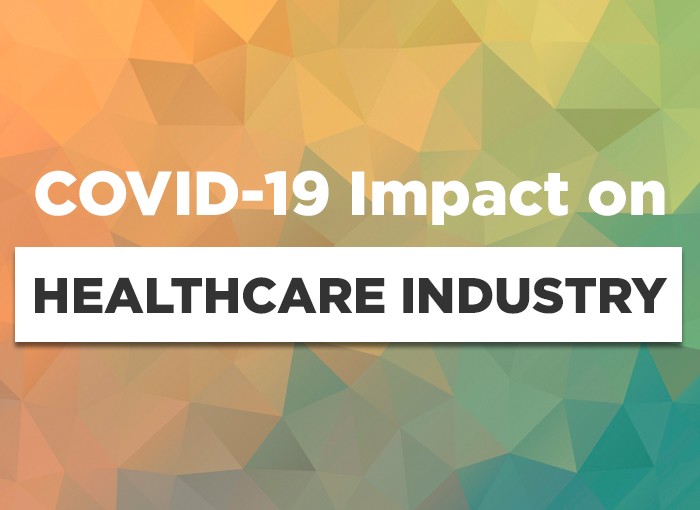How COVID-19 has impacted the Medical Billing and Healthcare Industry
Medical Billing, the essential activity coordinating between medical coders, insurance companies, healthcare providers, and patients, has a crucial role to play in the revenue cycle for healthcare providers.
The responsibility of any medical biller is to ensure that healthcare providers receive accurate reimbursement on patient insurance claims while also supporting safe and reliable dental care. However, the impact of COVID-19 on medical billing has made this task more challenging, increasing the need for billers to manage claims efficiently and adapt to evolving industry demands.
The need for efficiency in Medical billing further takes center stage during the COVID-19 outbreak due to reduced billing staff, lost revenue, and effectively lost resources. Surveys suggest that in the United States, a moderate surge in Covid-19 patients at a hospital accompanies a 50% reduction in revenue. An efficient medical billing infrastructure, whether outsourced or in-house, would then ensure a regular revenue cycle and prevent further aggravation.
Medical Billing Developments During Covid-19
The US Centers for Medicare & Medicaid (CMS) and the American Medical Association (AMA) have introduced updated coding and reporting aspects of Covid testing. CMS issued the Healthcare Common Procedure Coding System (HCPCS) codes that can be used by laboratories for some Covid diagnostic tests. Within these, CMS adds two codes – U0001 and U0002 for Covid tests, with the latter allowing clinical labs outside of CDC to bill for their tests. Medicare is prescribed to reimburse $35 USD and $51 USD for U0001 and U0002 codes, respectively.
CMS in a FAQ on Medicare Fee-for-service Billing document guided Medical billers on billing and reimbursement for Covid-19 treatment. The document reminded that Medicare will cover both, evaluation and management furnished in a beneficiary’s household, and non-face-to-face services rendered by healthcare providers.
Several states have adopted a policy to shield patients from surprise medical bills for treatments delivered during the pandemic. The policy requires that healthcare professionals considered ‘out-of-network’ while treating Covid patients be considered ‘in-network’ because of the state of emergency.
Telemedicine as a new service presents some coding and billing challenges, the US department of Health and Human Services (HHS) issued wide rules to enable providers to optimize telemedicine and get paid the same amount. Further, AMA has also advised on telemedicine coding and billing using CPT codes.
Furthermore, medical coding and billing need to be precise, comprehensive, and accurate as researchers looking at the behavior of the pandemic as reference for future protection will refer to this primary data.
COVID-19 Impact on Healthcare Industry
Due to Covid-19 induced job losses, a rational shift from commercial insurance to government-backed insurance programs is expected, along with a considerable reduction in revenue for Medicare funding.
Government programs fund almost half of all healthcare expenditures; a sizable portion of these is Medicare, which is supported by taxes on the payroll. With 30 million Americans filing for unemployment, and 27 million possibly losing their employer-sponsored insurance coverage, the burden on Medicare is likely to increase, and accompanied by a reduction in payroll tax revenues for Medicare could lead to insolvency, as suggested by reports.
This will impact healthcare providers who have utilized margins from commercial insurance to balance out costs from poorer reimbursing government programs. With government-funded programs expected to increase, the absence of this cost-shifting would lead to a substantial reduction in revenue for healthcare providers.
Additionally, companies providing telemedicine services are gaining traction as people refrain from going to hospitals. Digital health and telemedicine could appear as important tools to accomplish the goal of lower cost but quality care. This area had already seen venture capital investment grown to USD 7.4 billion in 2019, and leveraging technology for diagnosis, remote monitoring could only see more growth.
What’s Ahead for the Medical Billing and Healthcare Industry?
Covid-19 has revealed the preparedness of the healthcare system across the globe. The overburdened healthcare industry is facing an acute shortage of medical staff, space, emergency centers, etc. To keep the operations running for patients’ care, the industry needs to allocate appropriate medical billing and healthcare professional resources to meet the demands during Covid-19 while keeping the staff safety at paramount.
The patients also need to bear the financial responsibility as reports of patients leaving the medical bills unpaid after potential Coronavirus symptoms are being surfaced.



